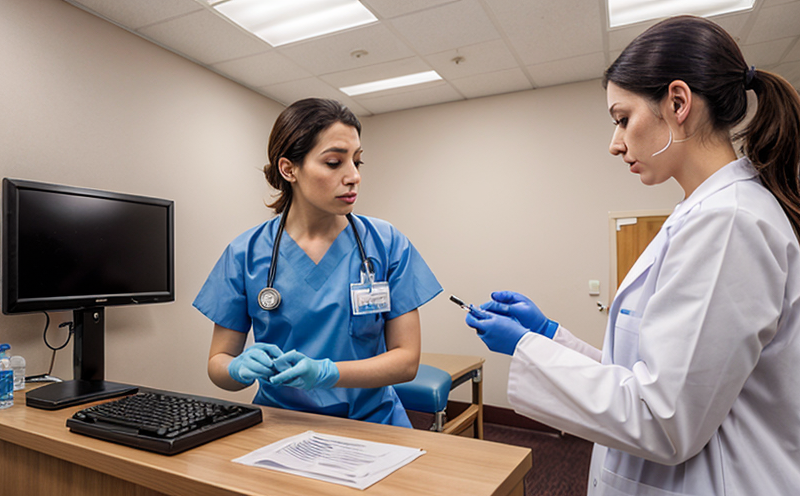Hormonal Growth Promoter Screening in Beef Cattle
The use of hormonal growth promoters (HGP) is a contentious issue within the livestock industry. These substances are often used to accelerate weight gain and increase feed efficiency, but their presence in beef cattle can have significant implications for public health and regulatory compliance.
Our laboratory specializes in providing comprehensive testing services that ensure the safety and integrity of food products derived from agricultural practices. For beef cattle, this involves rigorous screening for the detection of prohibited substances such as ractopamine (Payl), clenbuterol (Salbutamol), zilpzalaf (Zilpresa), and others.
The importance of accurate and reliable testing cannot be overstated. Regulatory bodies like the World Organization for Animal Health (OIE) and Food and Agriculture Organization (FAO) have established strict guidelines to prevent the introduction of harmful substances into the food chain. Compliance with these regulations is not only a legal requirement but also essential for maintaining consumer confidence.
Our testing process begins with thorough sample collection, which includes blood or urine samples from selected cattle herds. These specimens are then processed using advanced analytical techniques such as liquid chromatography-tandem mass spectrometry (LC-MS/MS). This method provides high sensitivity and specificity, allowing for the precise identification of even trace amounts of prohibited substances.
The results of our tests are reported with detailed documentation that includes sample identification, test parameters, and compliance status. Compliance officers and quality managers can use this information to make informed decisions about herd management and ensure adherence to international standards like ISO 17025 for laboratory competence.
By partnering with us, you gain access to a team of experts who understand the complexities of livestock testing. Our services are designed to meet the stringent requirements of various regulatory bodies, ensuring that your products meet the highest quality and safety standards.
Why It Matters
The detection and control of hormonal growth promoters in beef cattle is critical for several reasons:
- Public Health Concerns: Prohibited substances can pose serious health risks to consumers, leading to public outcry and potential market losses.
- Regulatory Compliance: Non-compliance with international standards can result in fines, product recalls, and reputational damage for producers.
- Ethical Considerations:
Benefits
- Promotes Consumer Confidence: Ensures that food products are safe and free from harmful substances.
- Avoids Legal Penalties: Helps producers avoid fines and legal actions associated with non-compliance.
- Enhances Reputation: Demonstrates a commitment to quality and safety, enhancing the reputation of your brand.
- Ensures Compliance: Ensures that all products meet international standards for food safety.
Use Cases and Application Examples
| Use Case | Description |
|---|---|
| Pre-harvest Testing | Conducting tests before cattle are sent to slaughter ensures that no prohibited substances have been introduced into the food chain. |
| Post-harvest Testing | Testing after meat has been processed helps verify that processing does not introduce any prohibited substances. |
| Routine Monitoring | Ongoing monitoring of herds to ensure compliance and prevent accidental contamination. |





